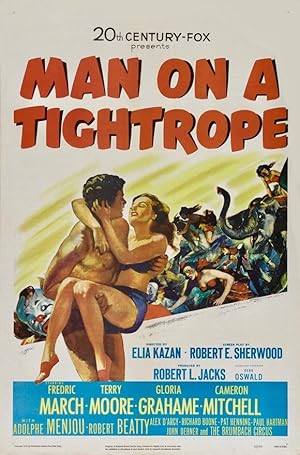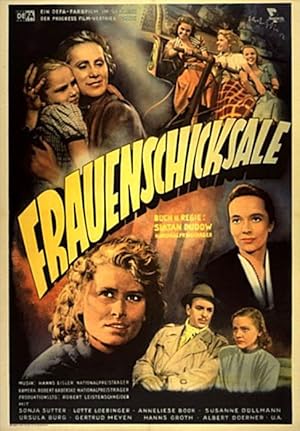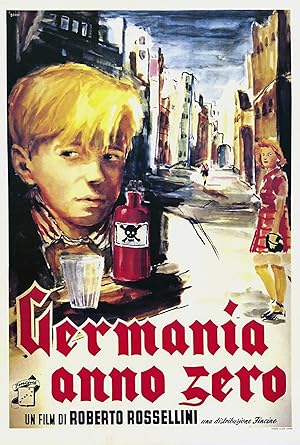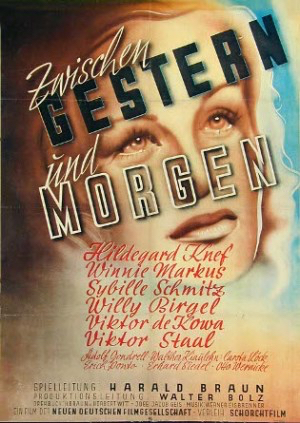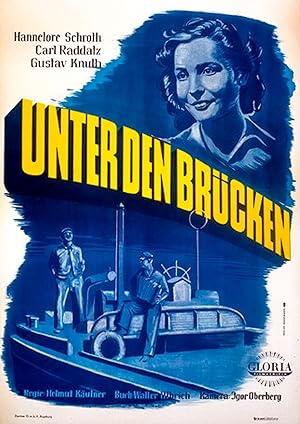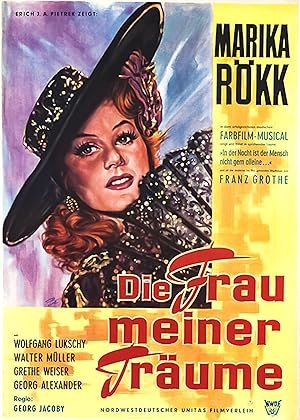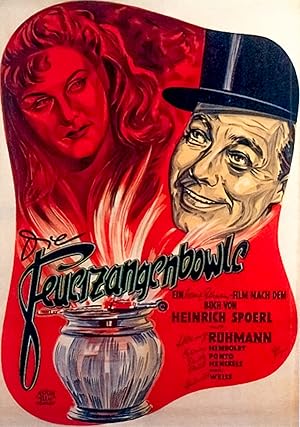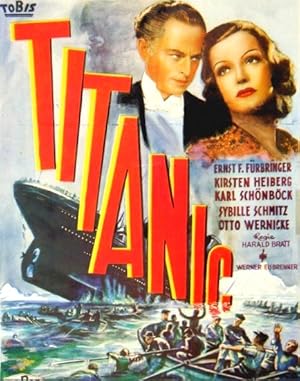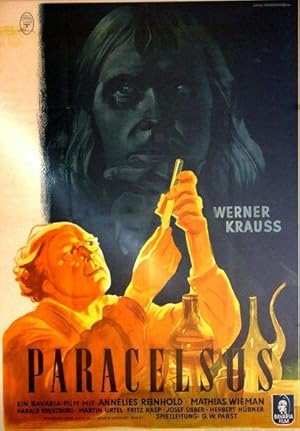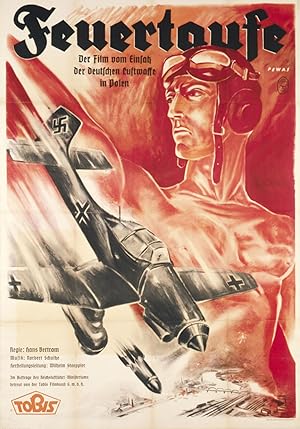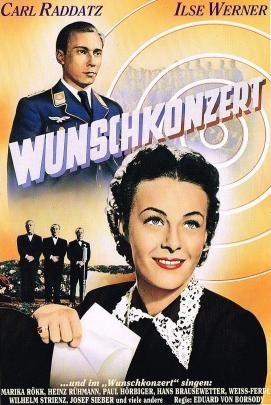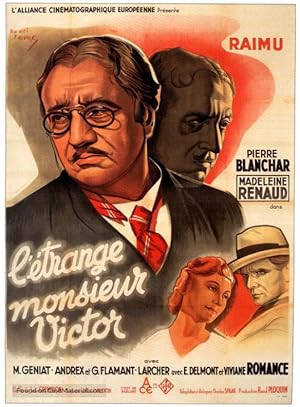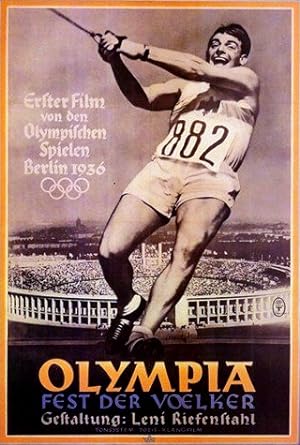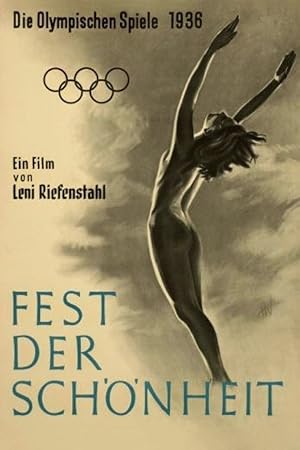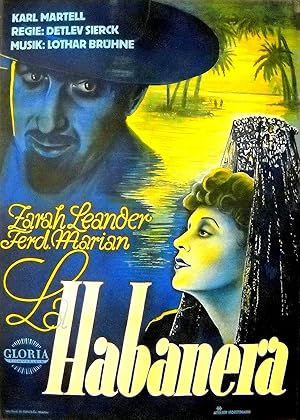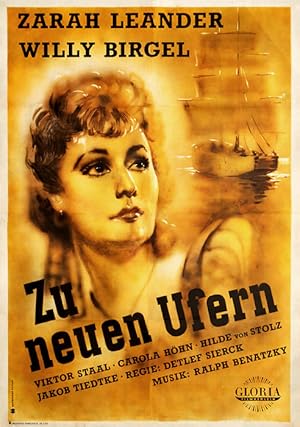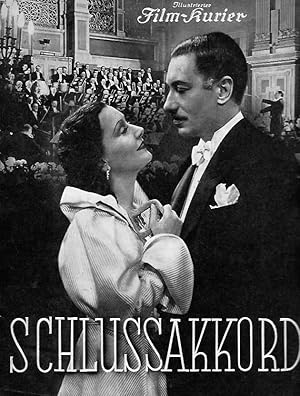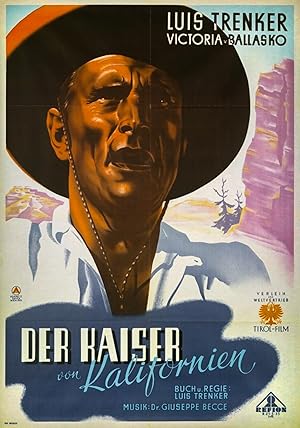Top Movies from Germany
You’re now browsing page 187, where our exploration of Germany films continues. If you’ve already discovered some standout titles on previous pages, now is the perfect time to delve even deeper and uncover more cinematic treasures. Keep exploring and enjoy the journey!
Man on a Tightrope (1953)
0
The owner of an impoverished circus in Communist-ruled Czechoslovokia plots to flee across the border to freedom, taking his entire troupe of performers and wild animals with him.
Destinies of Women (1952)
0
Berlin 1952, seven years after WWII. Four women are looking for a good man and happiness in the divided city. Their destinies are loosely connected through one person: the West Berlin dandy and womanizer, Conny.
Germany, Year Zero (1948)
2
In the ruins of post-WWII Berlin, a twelve-year-old boy is left to his own devices in order to help provide for his family.
Between Yesterday and Tomorrow (1947)
0
A group of people gathers back in the post-war ruins of a luxurious Munich hotel they inhabited at one point or another years before; each trying to cope with the tragic consequences of the war and their own actions.
Under the Bridges (1946)
0
Two barge skippers fall in love with the same woman.
The Woman of My Dreams (1944)
0
Blonde goddess Marika Rökk plays Julia Koster, a ravishing red-headed musical revue star and her opening number, "At Night It Isn't Right To Be Alone", playing to a packed theater, is both an eye-popper and a jaw-dropper.
The Punch Bowl (1944)
0
Die Feuerzangenbowle from Director Helmut Weiss is based on the novel by the same name from Heinrich Spoerl and Hans Reimann that has turned into a cult German film. The film tells the story of a writer Johannes Pfeiffer who goes undercover as a student in a high school after his friends told him that he missed out on a great life experience since he was home schooled.
Titanic (1943)
1
This little-known German film retells the true story of the British ocean liner that met a tragic fate. Ernst Fritz Fürbringer plays the president of the White Star Line, who unwisely pressed the Titanic's captain (Otto Wernicke) to make the swiftest possible crossing to New York.
Paracelsus (1943)
1
The story of the Renaissance-era Swiss physician, alchemist and astrologer Philippus Aureolus Theophrastus Bombastus von Hohenheim, better known to the world as Paracelsus.
Baptism of Fire (1940)
0
The Legend of the Luftwaffe began in Poland, the first victim of Hitler's blitzkrieg. Combat cameramen filmed the aerial campaign, showing preparations for flight, massive air strikes, and the appalling devastation wreaked upon Polish towns and armies. Highlighted by a lengthy, riveting sequence depicting the siege of Warsaw, Feuertaufe inspired Germany with pride and confidence and foreign viewers with dread. Norbert Schultze's original score lyrically enhances this propaganda masterpiece.
Request Concert (1940)
0
The young, attractive Inge Wagner becomes acquainted with Herbert Koch during the Berlin Olympics, his flight officer insignia having first caught her eye. Sparks fly immediately between the two and they soon decide to marry. But Herbert is called off on a secret mission in Spain.
The Strange Monsieur Victor (1938)
0
Outwardly, Monsieur Victor would appear to be the model citizen. A respectable Toulon shopkeeper, he has a devoted wife and is courteous and considerate to all who know him. However, beneath this veneer of respectability hides a notorious receiver of stolen goods, who trades with hardened criminals. Victor manages to keep up his double life without any difficulty until the fateful day when one of his partners in crime threatens to expose him. Fearing a scandal, Victor kills the crook in a moment of panic, using a shoemaker's tool. Naturally, the murder is blamed on a local shoemaker, who is sentenced to ten years' hard labour. Seven years
Olympia: Part One – Festival of the Nations (1938)
0
Commissioned to make a propaganda film about the 1936 Olympic Games in Germany, director Leni Riefenstahl created a celebration of the human form. This first half of her two-part film opens with a renowned introduction that compares modern Olympians to classical Greek heroes, then goes on to provide thrilling in-the-moment coverage of some of the games' most celebrated moments, including African-American athlete Jesse Owens winning a then-unprecedented four gold medals.
Olympia: Part Two – Festival of Beauty (1938)
0
Commissioned to make a propaganda film about the 1936 Olympic Games in Germany, director Leni Riefenstahl created a celebration of the human form. Where the two-part epic's first half, Festival of the Nations, focused on the international aspects of the 1936 Olympic Games held in Berlin, part two, The Festival of Beauty, concentrates on individual athletes such as equestrians, gymnasts, and swimmers, climaxing with American Glenn Morris' performance in the decathalon and the games' majestic closing ceremonies.
La Habanera (1937)
0
While vacationing in Puerto Rico, a young Swedish woman falls in love with and marries a powerful local landowner. Ten years later, their marriage has turned sour; meanwhile, two Swedish doctors have arrived on the island to investigate a mysterious fever.
To New Shores (1937)
0
A 19th-century London cabaret singer is deported to prison in Australia. Her crime? Taking the blame when her lover bounces checks.
The Final Chord (1936)
0
After her husband dies, a German woman who gave up her infant for adoption to emigrate to America returns to Germany, discovering that her child is being raised by a married orchestra conductor.
The Emperor of California (1936)
0
The film follows the life story of Johann Augustus Suter, the owner of Sutter's Mill, famous as the birthplace of the great California Gold Rush of 1848.
